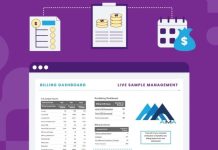As fast as technology seems to evolve around our everyday lives, drug research and development is still a painstakingly long process in most cases, taking upwards of 10 years from discovery to market development. The coronavirus pandemic prompted global collaboration that has utilized contemporary and cutting-edge science to pare these timelines down greatly. But already, some pharmaceutical and biotechnology organizations are looking to advance drug development into the quantum realm. Drug discovery is often like looking for the light switch in a dark room, and quantum computing could offer scientists a powerful flashlight.
Swiss pharmaceutical company Roche is teaming up with U.K.-based quantum computing startup Cambridge Quantum Computing (CQC) to create and implement quantum algorithms for early-stage research into new treatments for diseases like Alzheimer’s and others. The initiative combines CQC’s innovative quantum chemistry platform EUMEN with Roche’s industry-leading research and development—not to mention its considerable financial resources. It represents one of the most substantial research projects in the advancement of quantum computing, and its applications in healthcare, to date. Using CQC’s quantum algorithms, researchers can simulate miniscule chemical interactions in a fraction of the time of standard computing, potentially slashing costs and time-to-market.
In similar fashion, Canadian quantum computing company 1QBit joined American biotech and pharma company Biogen, and multinational professional services provider Accenture, in an effort to evaluate the accuracy of their molecule comparison models. The collaboration resulted in a stunningly successful proof-of-concept breakthrough, showing that quantum-enabled comparison methods were as good as or better than current methods. Although Biogen has yet to employ quantum computing in practical R&D, the company is working closely with 1QBit to further its exploration into the technology.
Cross-industry partnerships are fueling the advancement of quantum computing technology in healthcare, as also seen by the union between Google Quantum AI and international pharmaceutical giant Boehringer Ingelheim. The two industry titans hope to leverage each other’s strengths to give quantum-enabled medical R&D a turbo boost. In 2019, Google announced it had reached quantum supremacy—a benchmark of the technology outperforming a supercomputer by an overwhelming margin of time. It’s a landmark achievement for Alphabet, Inc., and for quantum computing in practice. The technology has the potential to quicken the discovery of new therapies for diseases that have been intractable for years. Quantum technology doesn’t necessarily need to completely replace standard computing, but the possibilities for betterment could be incalculable.























